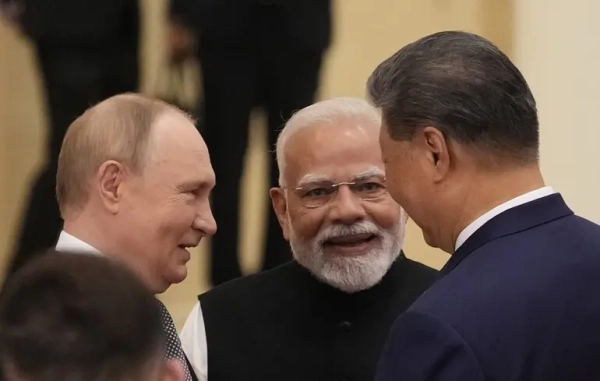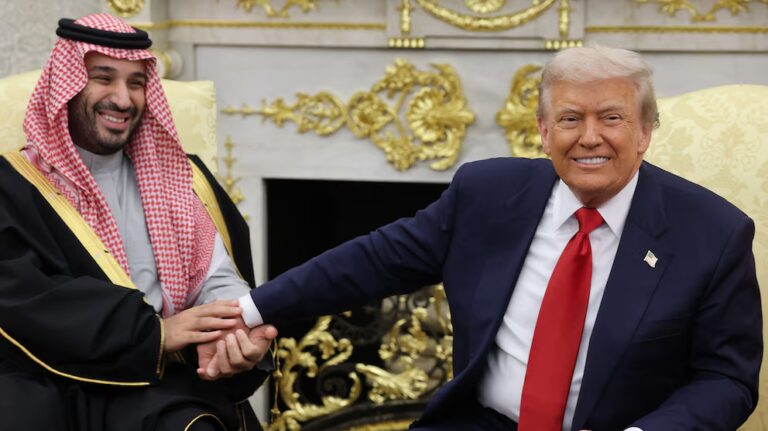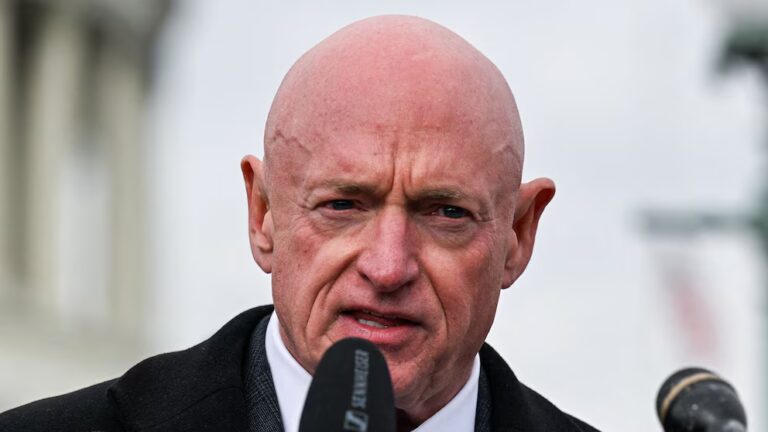
© EPA/SUO TAKEKUMA / POOL At the same time, the “warm welcome” of the Kremlin leader on the world stage does not go beyond certain limits.
When Russian dictator Vladimir Putin attended a summit of Eurasia’s main political and security organization three years ago, the Kremlin leader appeared isolated. Chinese leader Xi Jinping expressed concern about Putin’s invasion of Ukraine, Indian Prime Minister Narendra Modi bluntly declared that “ now is not the time for war ,” and Russian troops were failing on the battlefield. Much has changed for Putin now — as has the wider world, the NYT writes .
Nowhere has this been more evident in recent days than in Tianjin, China , where on Monday, September 1, leaders of the Shanghai Cooperation Organization (SCO) countries, a Eurasian security bloc, met with heads of state from other countries.
Putin used the occasion to publicly blame the West for Russia's war in Ukraine. He shook Modi's hand cheerfully and smiled as they both joined Xi. The leaders of Iran, Nepal, Tajikistan, Turkey and Vietnam greeted Putin warmly in closed-door meetings.
“It felt like the war had been accepted in a way. It was like a return to normal life, as if the war had never happened,” says Maria Repnikova, a professor of global communications at the University of Georgia who studies China and Russia.
The Ukrainian Foreign Ministry called it “speakable” that the group’s summit communiqué did not mention “the largest war of aggression in Europe since World War II,” despite the fact that the statement mentioned a number of other wars, terrorist attacks, and events in the world.
The summit was “overshadowed” by Trump, who helped end Putin’s isolation, both by welcoming him to American soil for the first time in decades and by entering into conflict with the leaders of Brazil, India, and South Africa, pushing them to move closer to Russia.
Trump's relationship with Modi has soured as India resisted pressure from Washington to give the American leader credit for de-escalating tensions between New Delhi and Pakistan. Trump later imposed tariffs on India for buying Russian oil.
After a “warm meeting” with Putin, Modi seemed to hint that India had other options.
Since the beginning of the full-scale invasion of Ukraine, Russia has been concerned about diplomatic relations with countries “outside the West,” especially China, India, and Turkey, which are critically important for the Russian economy.
“Not only has Russia survived three and a half years of a difficult war and is still standing on its feet, continuing to move forward, but it has also demonstrated quite skillful diplomacy. Russia has built a network of relationships that are important for the Russian economy, legitimize Putin’s system, and make the impact of the war on Russia smaller than it could be,” says Michael Kimmage of the Kennan Institute, which specializes in Eurasian issues.
But Putin's warm welcome at the summit did not go beyond a certain point. Relations between many European countries and Moscow remain frozen, which is holding back Russia's partners who rely on trade with Europe. Most of them do not recognize Russia's territorial claims and do not openly support its war.
But destructive trade wars and Trump’s volatile foreign policy have created an opportunity for Putin and Xi, who are presenting themselves as more stable potential partners. Putin, in particular, has warned for years about the chaos provoked by the United States.
“The Chinese thesis, which the Russians readily subscribe to, is that the US is the source of the mess. This is no longer just a meme or a thesis. It is true,” Kimmage added.
After the Tianjin meeting, China will mark the 80th anniversary of Japan's surrender in World War II. Putin will stay for the celebrations, which will include a military parade similar to the one held in Moscow in May — Xi Jinping attended the celebrations in the Russian capital.
At the same time, in some countries that Moscow had long considered part of its sphere of influence, Russian influence has eroded.
The Kremlin faced questions on Monday about when Putin would meet with Azerbaijani President Ilham Aliyev, who was also in Tianjin, amid strained relations between Moscow and Baku.
Aliyev and Armenian Prime Minister Nikol Pashinyan visited Trump in Washington last month, signing a peace deal — the White House “taking away” the Kremlin’s role as the traditional mediator between the two countries. Putin met with Pashinyan in Tianjin on Sunday, August 31.
Russian Foreign Minister Sergei Lavrov presented the Tianjin summit as a response to what he called Western efforts to maintain dominance through tariffs and the dominant role of the U.S. dollar in international trade. It is now clear, he said, that the West’s competitors “have not only become stronger, but in many respects have already surpassed the historical collective West.”
The SCO summit in Tianjin, China, was unique in many ways. And it’s not that a record number of participants came to the 25th meeting of heads of state and government, or even that a significant part of them will stay for the parade in China. For the main guests — Putin and Modi, as well as for Xi himself, this summit began somewhat earlier than its formal opening. Putin, in particular, walked the red carpet in Anchorage and received from Trump an indulgence to go “out into the world”, continuing to kill Ukrainians.
Serhiy Korsunskyy reflected on the summit's decisions, whether they will lead to practical results, and whether the SCO is truly capable of changing global rules in the article “ SCO Summit: How Beijing is Assembling an Alliance of Autocrats Against Washington .”






